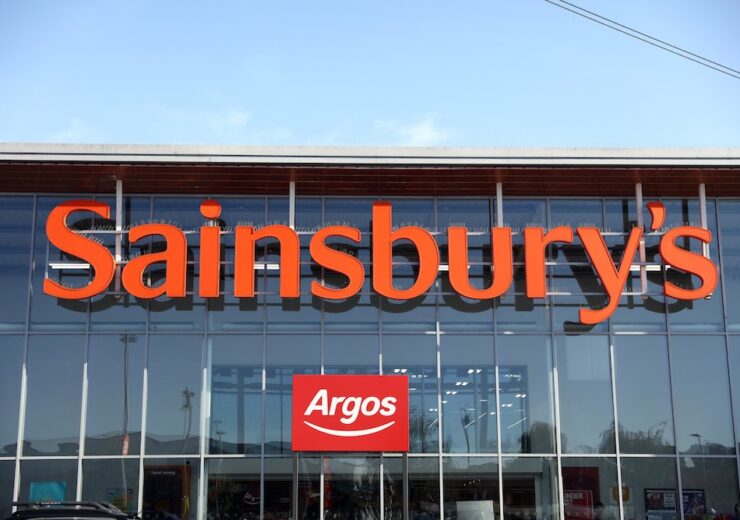The flexible plastics system set up by Sainsbury’s means its recycling a material that isn’t currently accepted by most councils in the UK

The flexible plastic film part of the system includes all carrier bags, bread bags, cereal bags, and bags and wrappings used for fruit, vegetables, salads and flowers (Credit: Sainsbury's)
Sainsbury’s has announced the introduction of a trial recycling system that will allow customers to recycle flexible plastics found in several household products.
The launch of this new scheme – which will take place in 63 of its stores in the north-east of England and will focus on polypropylene (PP) film – comes as part of the supermarket’s commitment to making recycling easier for its customers.
Providing the trial is successful, the retailer will roll out the PP film collection system to all its supermarkets by the end of 2021, in alignment with the ambition of the UK Plastics Pact to improve the recycling rates for film.
Sainsbury’s’ director of product and innovation Claire Hughes said: “Sainsbury’s is dedicated to trialing and testing new initiatives as part of our ongoing commitment to making it easier for customers to recycle.
“We hope that by trialing flexible film recycling points in our stores and accepting more of the packaging that our customers may be unable to recycle at home, we are helping our customers reduce plastic waste.
“We’ll listen to feedback from our colleagues and customers before we roll out the flexible plastic packaging recycling scheme wider.
“As we work to reduce, reuse, replace and recycle plastic packaging, we’ll continue to find collaborations, working with our suppliers, academics and organisations such as WRAP to explore innovative ways to reduce and recycle more of our packaging.”
Flexible plastics system set up by Sainsbury’s recycling a material that isn’t accepted by most councils in the UK
PP film currently isn’t accepted by most councils in the UK, which means customers are currently unable to recycle it at home.
A report from last year published by Valpak and commissioned by WRAP highlighted that 266,000 tonnes of plastic packaging waste in 2019 came from PP plastics – and of that, 80,000 tonnes came from PP film.
Despite this, until a sustainable alternative is developed to replace it, PP film continues to be the most appropriate material used to package food and to keep products fresh.
WRAP’s head of business collaboration Dr. David Moon said: “We welcome Sainsbury’s trials of polypropylene film recycling in stores across so many locations in the north-east.
“Developing solutions to overcome the challenge of recycling flexible plastic packaging is a priority for the UK Plastics Pact.
“Collection points for films at these Sainsbury’s stores is an important step in the right direction, building on their trials of polyethylene film collections.
“We need all supermarkets to collect all plastic films, adopt consistent messaging and share their insights to make this work.
“WRAP urges other retailers to ensure that flexible plastic packaging can be easily collected for recycling throughout the UK.”
To make it easier to recycle flexible plastic packaging, customers will be able to put their PP plastics into the same recycling bins currently provided in Sainsbury’s stores that collect PE plastics.
The flexible plastic film part of the system includes all carrier bags, bread bags, cereal bags, bags and wrappings used for fruit, vegetables, salads and flowers, and bottle and can multipack wrapping.
In addition to this, the scheme will accept biscuit and cake wrappers, toilet and kitchen roll wrapping, rice and dry food wrappers, cheese wrappers, frozen food bags, clothing bags, and magazine and newspaper wrappers.
